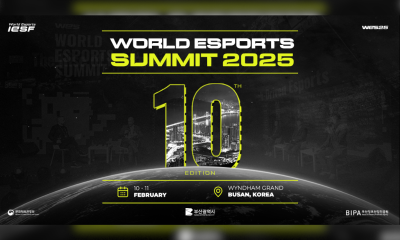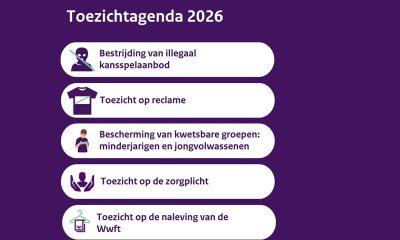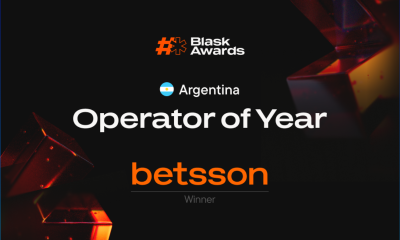Compliance Updates
Why regulation is good for the online gaming industry

By James Bay, Customer Service Director at STICPAY
“More countries are now looking closely at the online gaming industry and its regulation. This is a good thing that can only serve to make the industry more secure and give customers more confidence in the providers they use.
“While differing regulations can make life more complicated for companies that operate across multiple jurisdictions, the inconvenience is offset by the benefits regulation brings.
“Gambling is great fun and can be very rewarding, but we all know that there are potentially serious downsides to it. Online gaming is no different. Regulation is there to protect people from unscrupulous operators and that is something we will always support and welcome.
“Those who try to challenge regulation do so because they fear a loss of profit. A fair profit can be made while adhering to regulations that protect customers from fraud, exploitation, and unscrupulous operators.
“Genuine companies with secure networks and honest business principles have nothing to fear from regulation.”
Powered by WPeMatico
Compliance Updates
Finland Govt Looks at Whether Scratchcards can be Gifted Again
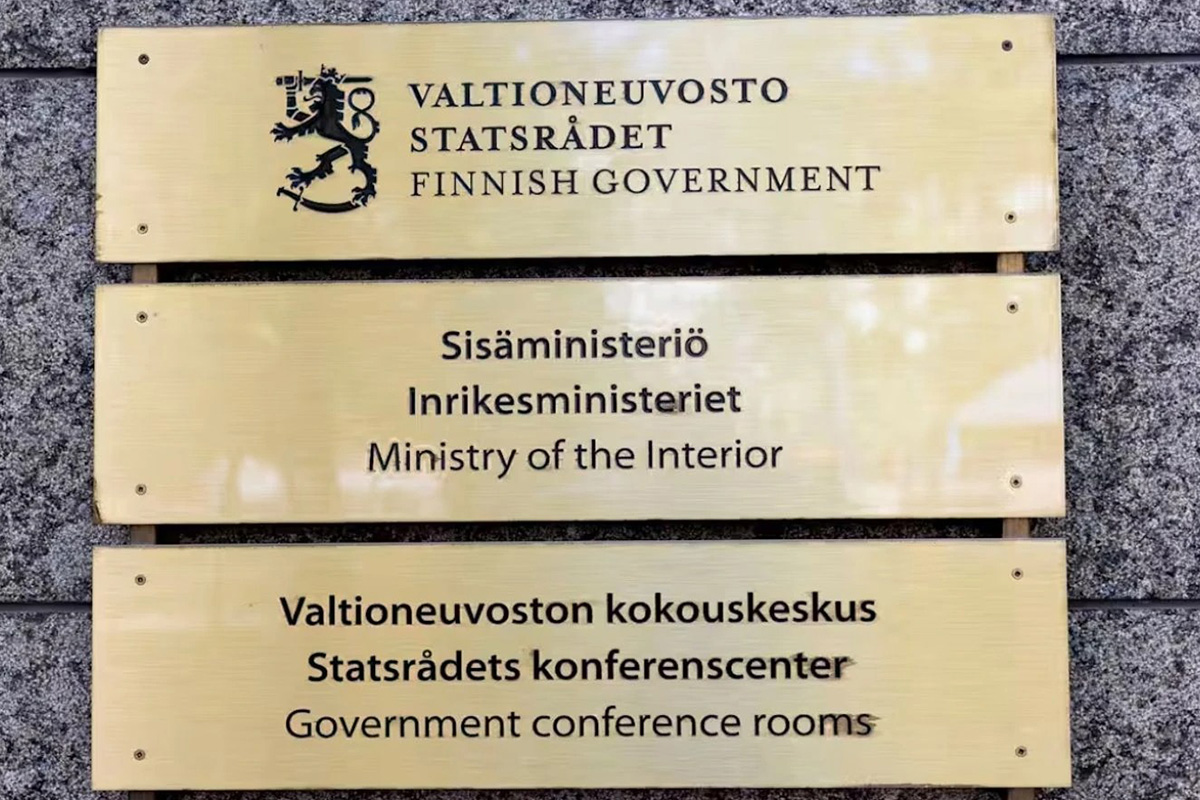
Finland’s Interior Ministry is examining whether scratchcards might once again be allowed as gifts.
The investigation will consider whether winnings from a scratchcard could be claimed by someone other than the person who purchased the card.
At the start of 2024, scratchcards were brought under mandatory identification rules. Since then, recipients of gifted cards have been unable to redeem any prizes they potentially offer.
Parliament approved a new Lotteries Act in December. At the same time, legislators included a statement urging the government to explore ways to permit scratchcards to be given as gifts.
Christmastime is traditionally the biggest season for lottery scratch card sales in Finland.
The post Finland Govt Looks at Whether Scratchcards can be Gifted Again appeared first on Eastern European Gaming | Global iGaming & Tech Intelligence Hub.
Compliance Updates
VNLOK Report: Over 95% of Gambling Ads on Meta Platforms are from Illegal Providers
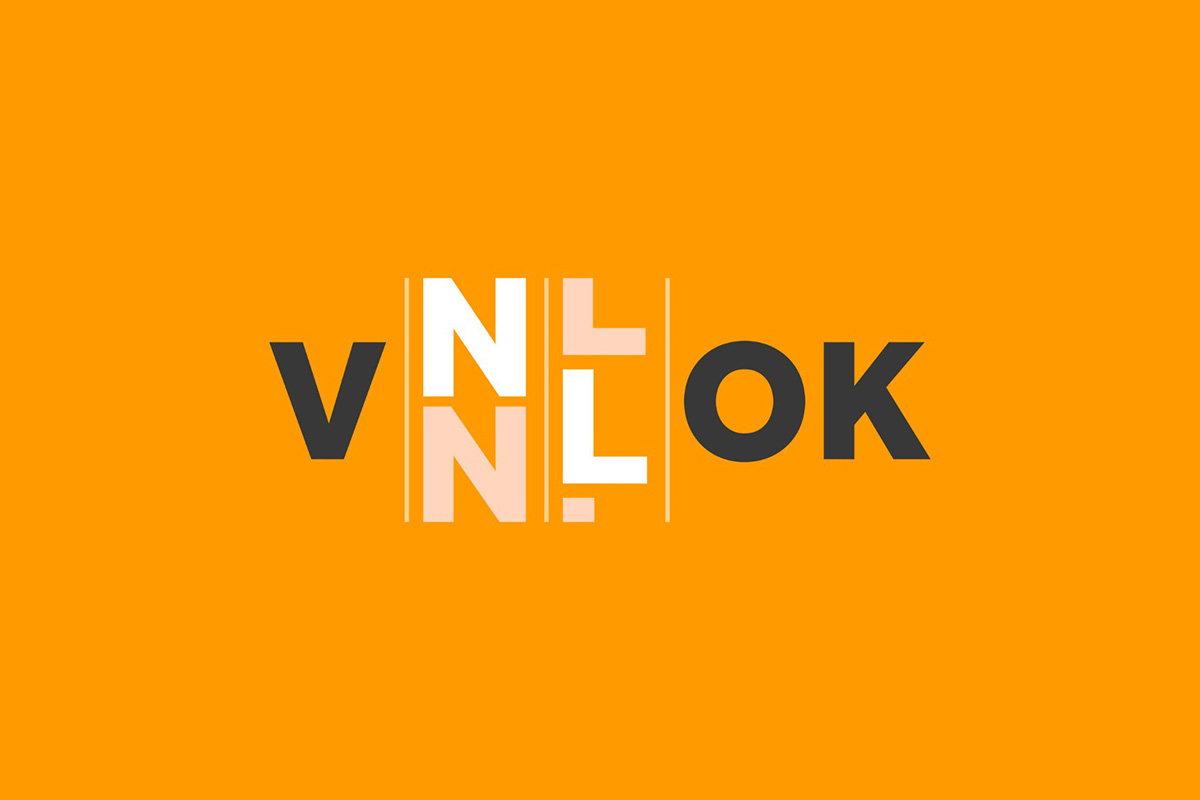
Illegal gambling providers continue to reach Dutch consumers on a large scale via Meta platforms. An analysis by VNLOK’s Ads Library for October, November and December 2025 shows that in each month, more than 95% of the gambling promotions found—both Facebook pages and advertisements—come from illegal providers. At the same time, only a small portion is removed by Meta, which calls for faster and more robust measures.
Illegal gambling advertisements are widely visible
Recent analyses show that illegal gambling advertising via meta-platforms remains widely visible to Dutch consumers. Of the Facebook pages and gambling ads promoting gambling, over 95% originated from illegal gambling providers in all three months.
Fast rotation with a wide reach
It’s striking that ads from illegal providers are rolled out and replaced at breakneck speed: on average, they were visible for one and a half days in October (79% for less than a day), two days in November (69% for less than a day), and two days in December, with 87% of illegal ads being visible for less than a day. Illegal gambling ads also have a wide reach, peaking at 50 million impressions in November.
Enforcement is lagging behind
The regulated Dutch gambling market is designed to protect consumers through strict duty of care, affordability guarantees and advertising regulations. Illegal providers fall outside this system, yet still manage to reach Dutch target groups on a large scale through social advertising. The share of illegal ads removed by Meta remains limited: 3% in October, 5.2% in November and 4.7% in December.
“These figures are alarming. The enormous flood of illegal gambling advertisements on Meta platforms undermines player protection and also erodes trust in the legal market. This problem is unfortunately growing. The promotion of illegal gambling websites on social media is expanding from social advertising to social content. Meta and other platforms are being flooded with viral videos featuring the brands of illegal gambling websites. This content is attracting targeted minors and young adults to illegal gambling offerings, where the risk of gambling harm is very high,” Björn Fuchs, Chairman of VNLOK.
Call from VNLOK
The findings show that the current approach by platforms and regulators is insufficiently aligned with the scale and speed of illegal gambling advertising on social media. To better protect consumers and safeguard the regulated system, additional and targeted actions are necessary:
Meta must strengthen proactive detection, advertiser verification, and rapid takedown processes for illegal gambling promotions targeting the Netherlands.
The Netherlands Gambling Authority must take even more enforcement action, within existing legal frameworks, against marketing companies and platforms that facilitate advertisements and/or content that direct Dutch consumers to illegal gambling websites.
The visibility and attractiveness of legal online gambling are crucial to prevent even more Dutch players from turning to illegal providers. Policymakers and regulators must ensure that additional rules and restrictions for legal providers do not compromise the visibility and attractiveness of legal online gambling. This will lead to a decrease in the net protection of Dutch consumers. A sufficiently visible and attractive legal offering is crucial to prevent even more Dutch players from turning to illegal providers.
The post VNLOK Report: Over 95% of Gambling Ads on Meta Platforms are from Illegal Providers appeared first on Eastern European Gaming | Global iGaming & Tech Intelligence Hub.
Compliance Updates
eGaming Integrity launches Voluntary Code Advisory Service for prize draw operators

eGaming Integrity – a leading compliance and internal audit advisory firm – has launched a Voluntary Code Advisory Service to support online prize draw and competition operators as regulatory scrutiny of the sector increases and a new compliance deadline approaches.
The service was launched following the introduction of the Department for Culture, Media and Sport’s Voluntary Code of Good Practice for online prize draws and competitions in November 2025. The Code sets a deadline of 20 May 2026. By that point, operators are expected to be more transparent, strengthen consumer protections and show active oversight of their operations. Failure to demonstrate effective voluntary compliance may increase the likelihood of statutory licensing and subsequent tighter regulation.
Prize draws are not regulated as gambling under the Gambling Act 2005. Despite this, the sector has grown rapidly and attracted attention in Westminster. The UK online prize draw market is now estimated to be worth around £1.3bn, with more than 7 million players. That scale has brought closer attention from policymakers.
The Voluntary Code shifts the focus from policy language to demonstrable practice. Operators now have to show what they actually do, and prove it.
eGaming Integrity’s new service is designed to help operators understand the requirements of the Code, assess current practices and prepare clear, practical evidence of compliance. Support covers areas including free entry routes, transparency of terms and odds, responsible marketing practices, internal monitoring processes and public disclosure of consumer protection measures.
Emma Shilling, Director at eGaming Integrity, said: “The Voluntary Code changes the conversation for prize draw operators. It is no longer enough to point to a policy and say the right words are there. Operators are being asked to show what happens in practice. Our job is to help businesses work that through properly, spot issues early and evidence what they are doing.”
eGaming Integrity’s audit and risk specialists lead the work. The focus is on practical rather than theoretical matters. Findings are clearly set out, with recommendations that operators can act on as regulatory expectations tighten.
Robert Penfold, Head of Internal Audit at eGaming Integrity, said:
“The writing is on the wall. This is voluntary for now, but that could change quickly. Operators who build real oversight systems today won’t be scrambling if this becomes statutory tomorrow.”
The Voluntary Code Advisory Service is available immediately to UK prize draw and competition operators.
The post eGaming Integrity launches Voluntary Code Advisory Service for prize draw operators appeared first on Eastern European Gaming | Global iGaming & Tech Intelligence Hub.
-

 Games Global6 days ago
Games Global6 days agoGames Global and Stormcraft Studios extend the supernatural franchise with Immortal Romance: Sarah’s Secret Power Combo
-
Latest News6 days ago
N1 Partners Hosts the N1 Puzzle Promo Grand Final and Reveals the Helicopter Winner at iGB Affiliate 2026 in Barcelona
-

 Amusnet6 days ago
Amusnet6 days agoWeek 4/2026 slot games releases
-

 AFCON 20257 days ago
AFCON 20257 days agoAFCON’s month of football did not lift iGaming demand — Blask data analysis
-

 Asia7 days ago
Asia7 days agoWorld Esports Summit Celebrates Its 10th Edition in Busan
-

 affiliate marketing6 days ago
affiliate marketing6 days agoN1 Partners Hosts the N1 Puzzle Promo Grand Final and Reveals the Helicopter Winner at iGB Affiliate 2026 in Barcelona
-

 Compliance Updates6 days ago
Compliance Updates6 days agoDutch Regulator Outlines 5 Key Supervisory Priorities for 2026 Agenda
-

 BetPlay3 days ago
BetPlay3 days agoBlask Awards 2025: Betano, Caliente, BetPlay, Betsson and others define Latin America’s iGaming landscape










